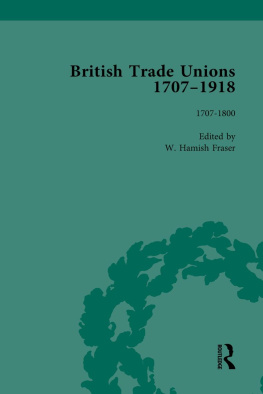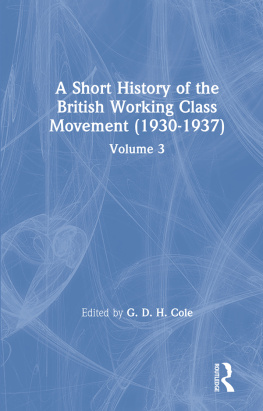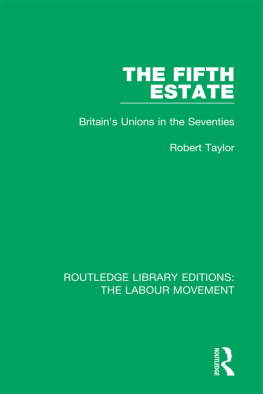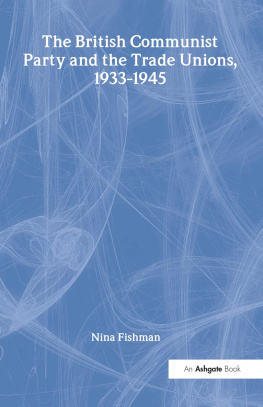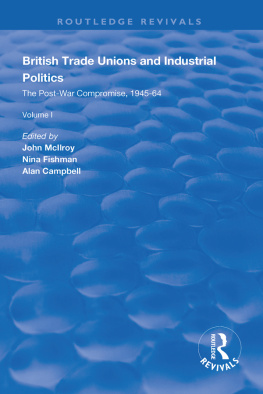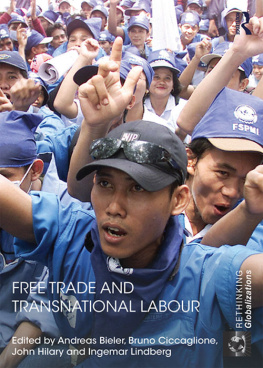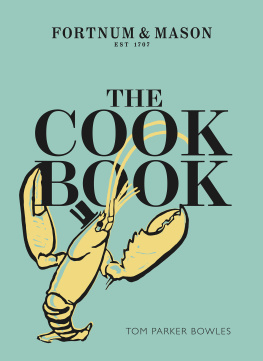W Hamish Fraser - British Trade Unions, 1707-1918, Part II, Volume 5
Here you can read online W Hamish Fraser - British Trade Unions, 1707-1918, Part II, Volume 5 full text of the book (entire story) in english for free. Download pdf and epub, get meaning, cover and reviews about this ebook. year: 2008, publisher: Routledge, genre: Science. Description of the work, (preface) as well as reviews are available. Best literature library LitArk.com created for fans of good reading and offers a wide selection of genres:
Romance novel
Science fiction
Adventure
Detective
Science
History
Home and family
Prose
Art
Politics
Computer
Non-fiction
Religion
Business
Children
Humor
Choose a favorite category and find really read worthwhile books. Enjoy immersion in the world of imagination, feel the emotions of the characters or learn something new for yourself, make an fascinating discovery.

- Book:British Trade Unions, 1707-1918, Part II, Volume 5
- Author:
- Publisher:Routledge
- Genre:
- Year:2008
- Rating:5 / 5
- Favourites:Add to favourites
- Your mark:
- 100
- 1
- 2
- 3
- 4
- 5
British Trade Unions, 1707-1918, Part II, Volume 5: summary, description and annotation
We offer to read an annotation, description, summary or preface (depends on what the author of the book "British Trade Unions, 1707-1918, Part II, Volume 5" wrote himself). If you haven't found the necessary information about the book — write in the comments, we will try to find it.
British Trade Unions, 1707-1918, Part II, Volume 5 — read online for free the complete book (whole text) full work
Below is the text of the book, divided by pages. System saving the place of the last page read, allows you to conveniently read the book "British Trade Unions, 1707-1918, Part II, Volume 5" online for free, without having to search again every time where you left off. Put a bookmark, and you can go to the page where you finished reading at any time.
Font size:
Interval:
Bookmark:

17071918
17071918
18651880

- Introduction
- George Howell, To the Trades Unionists of the United Kingdom, Operative Bricklayers Societys Trade Circular (1 August 1865)
- Mr. Potter and the London Trades Council [1865]
- Trades Societies and Lock-Outs. Report of the Conference of Trades Delegates of the United Kingdom, Held in the Temperance Hall, Townhead Street, Sheffield, on July 17th, 1866, and Four Following Days (1866)
- The Tailors Strike and the System of Picketing, Operative Bricklayers Society Monthly Report (1 September 1867)
- Edward Spencer Beesly, The Amalgamated Society of Carpenters and Joiners (1867)
- Report of the Various Proceedings Taken by the London Trades Council and the Conference of Amalgamated Trades, in Reference to the Royal Commission on Trades Unions, and Other Subjects in Connection Therewith (1867)
- Report of St. Martins Hall United Kingdom Trades Conference Committee on the Trades Union Inquiry Commission till 7th August, 1867 [1867]
- International Working Mens Association, To the Trades Unionists of Great Britain and Ireland [1868]
- J. M. Ludlow, Sir W. Erle on Trade Unions, Operative Bricklayers Monthly Report (1 March 1869)
- Trades Unions and the Cost of Labour. Speech Delivered by Thomas Brassey, Jun M.P. in the House of Commons 7th July 1869 (1870)
- Robert Jobson, Trades Unions: An Inquiry into Their Rules and Working, Based on the Evidence before the Royal Commission; Showing the Folly of All Attempts to Raise Wages by Violence and Strikes, and the Beauty and Excellence of the Divine Law Governing Workmen and Employers [1870?]
- W. P. Roberts, Trade Union Bill, 1871. A Letter by Mr. W. P. Roberts, (of London and Manchester, Solicitor) to Mr. George Potter, Mr. William Allan, Mr. Alexander MDonald and Others Interested in Trades Societies (1871)
- Report of the Conference of Trades Delegates, Held in the Town Hall, Leeds on December 2nd 1871. Called to Consider the Statement made by Wm. Newmarch, Esq., in His Address to the Social Science Congress Lately Held in Leeds [1872]
- W. H. Wood, The Advantages of Trades Unions [n.d.]
- Proceedings of the Miners National Association Conference, Held in Leeds, on 18, 19, 20, 21 and 22 November 1873 [1873]
- The Criminal Law Amendment Act. A Memorial to the Right Honourable Henry Austin Bruce, MP., with an Appendix of Cases under the Criminal Law Amendment Act [1873]
- Henry Crompton, Tracts for Trade Unionists No IV. The National Federation of Associated Employers of Labour. Report upon the Memorial Presented to the Home Secretary by the National Federation of Associated Employers of Labour, December 13th, 1873 [1874]
- Frederick Clifford, The Agricultural Lock-Out of 1874 with Notes upon Farming and Farm-Labour in the Eastern Counties (1875)
- National Association of Miners, Extraordinary Meeting of the Council Held in the Mechanics Institution, David St Manchester, 24 February 1875 (1875)
- Glasgow Herald, The Wages Agitation on the Clyde. 25,000 Men to be Locked Out (1877)
- Address from the Executive Council of the Amalgamated Society of Engineers to their Fellow Workmen Throughout the United Kingdom, the British Colonies, and Foreign Countries [1879]
- George Howell, Trade-Unions: Their Nature, Character, and Work, Frasers Magazine (January 1879)
- Explanatory Notes
- Permisssions
Font size:
Interval:
Bookmark:
Similar books «British Trade Unions, 1707-1918, Part II, Volume 5»
Look at similar books to British Trade Unions, 1707-1918, Part II, Volume 5. We have selected literature similar in name and meaning in the hope of providing readers with more options to find new, interesting, not yet read works.
Discussion, reviews of the book British Trade Unions, 1707-1918, Part II, Volume 5 and just readers' own opinions. Leave your comments, write what you think about the work, its meaning or the main characters. Specify what exactly you liked and what you didn't like, and why you think so.

